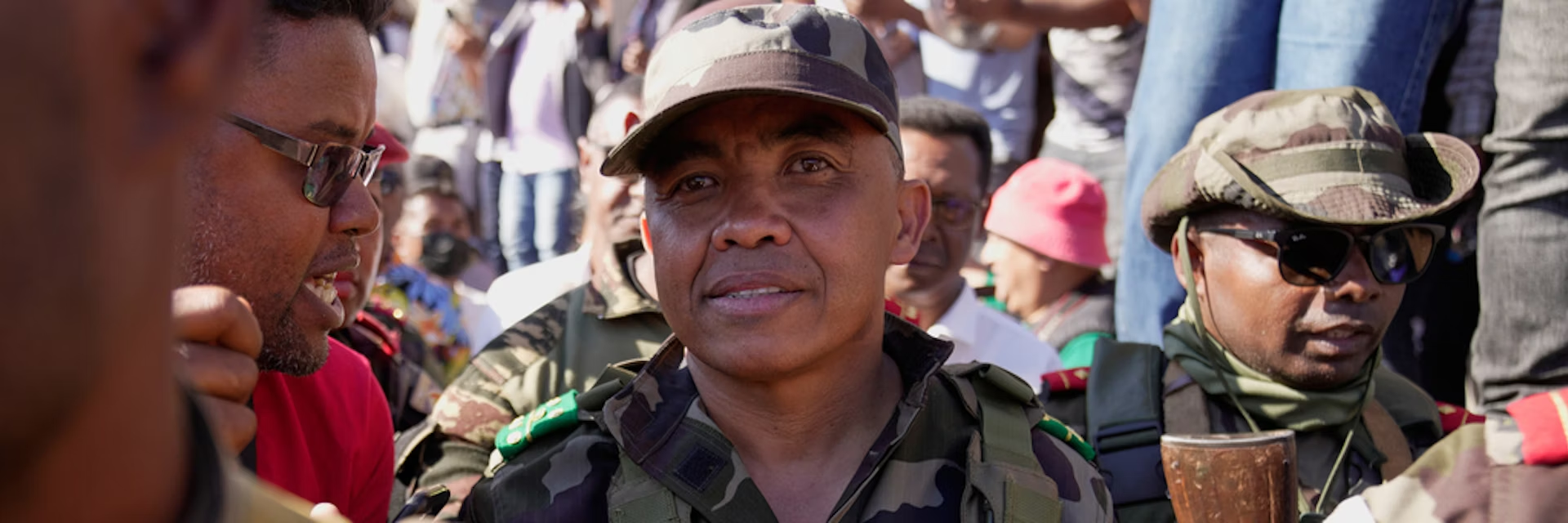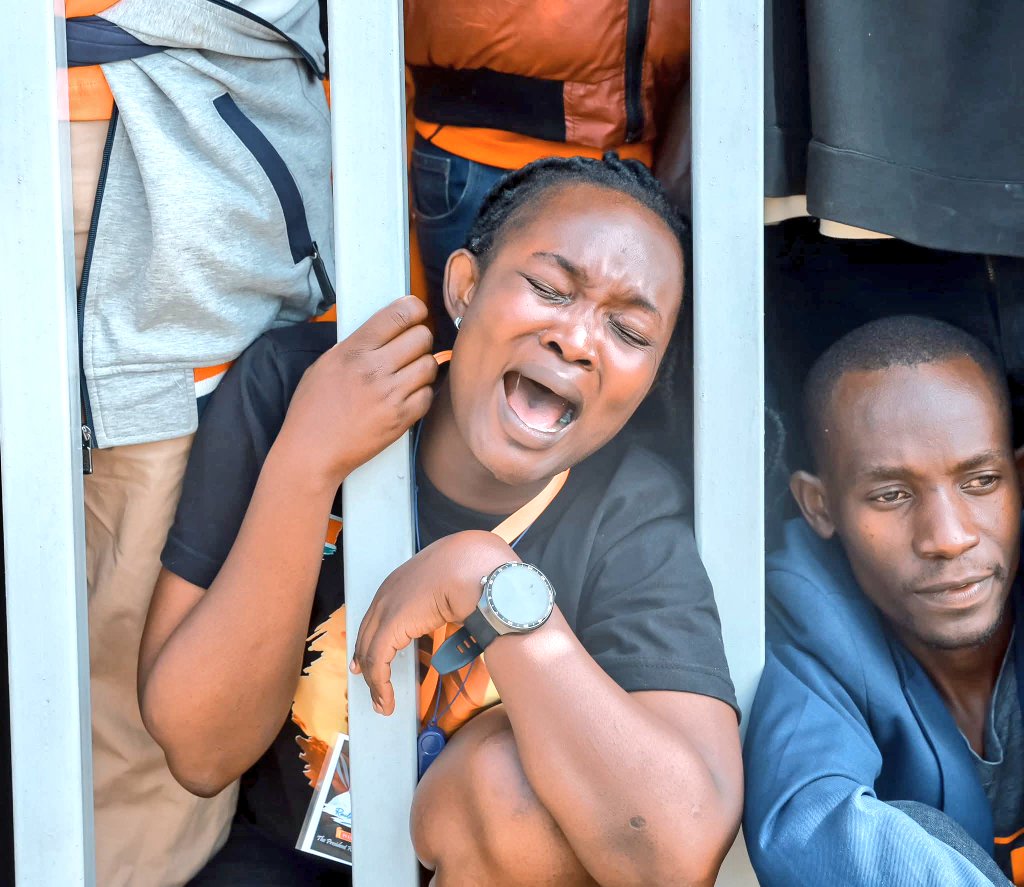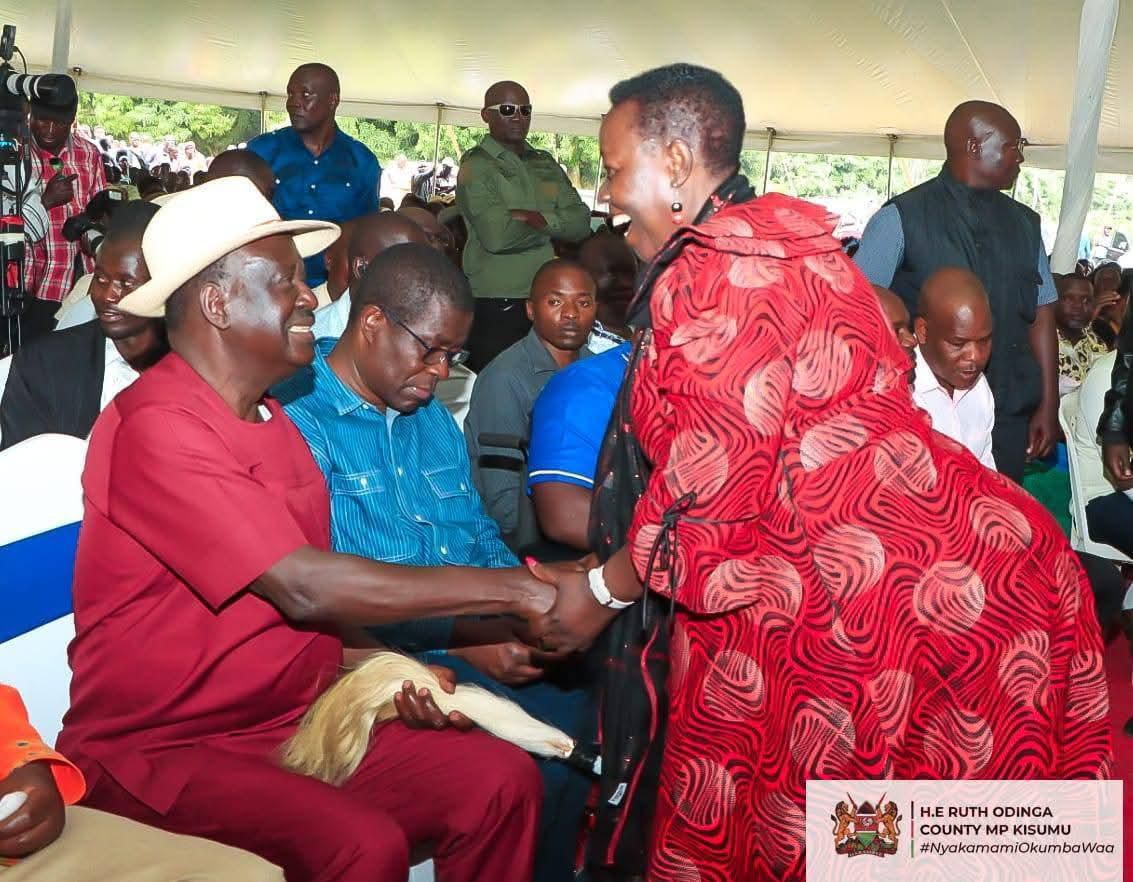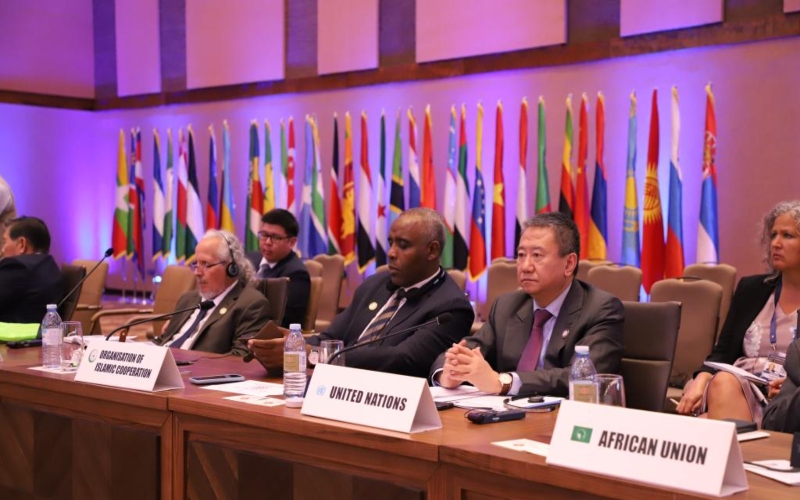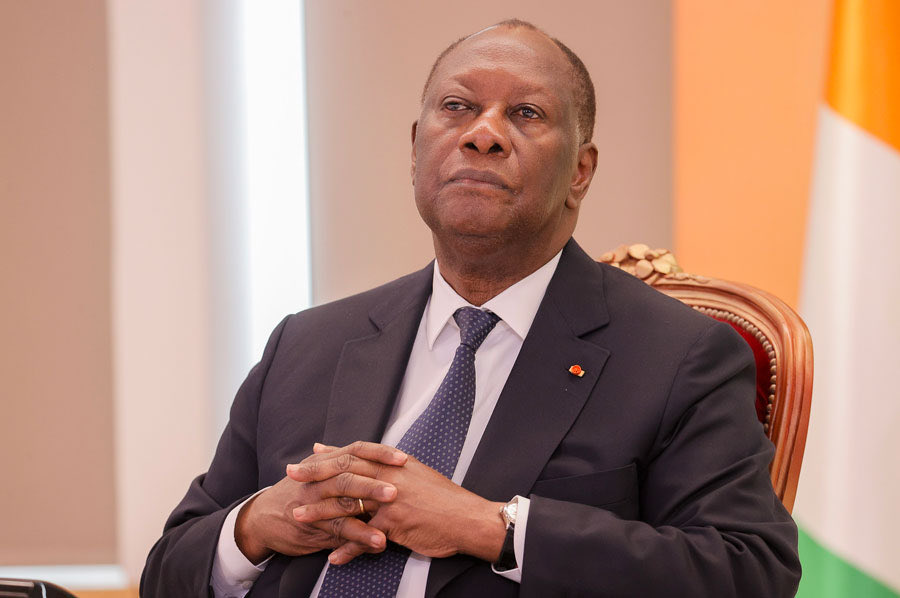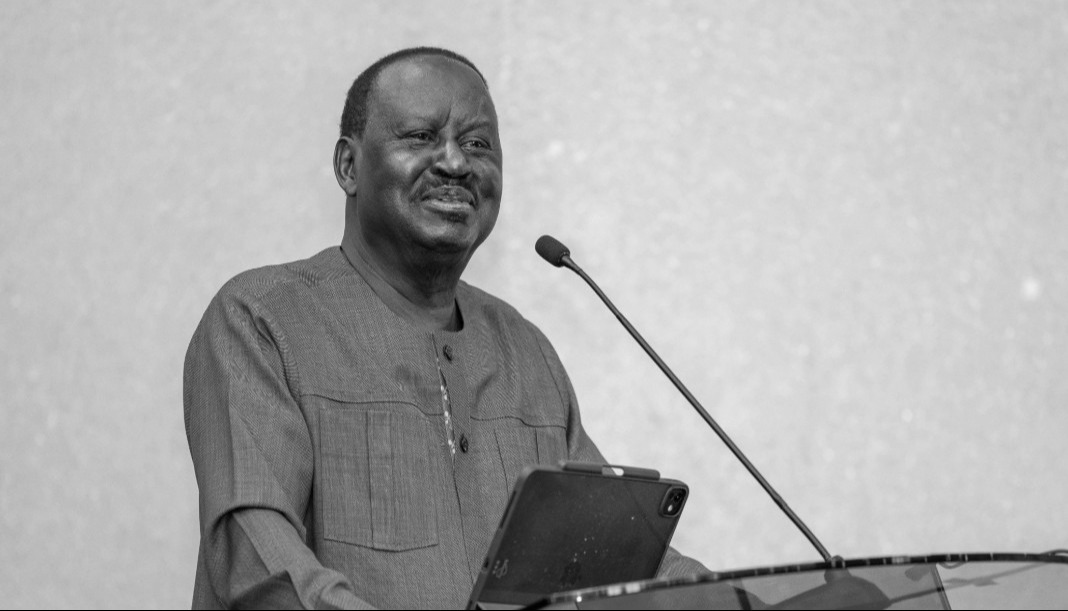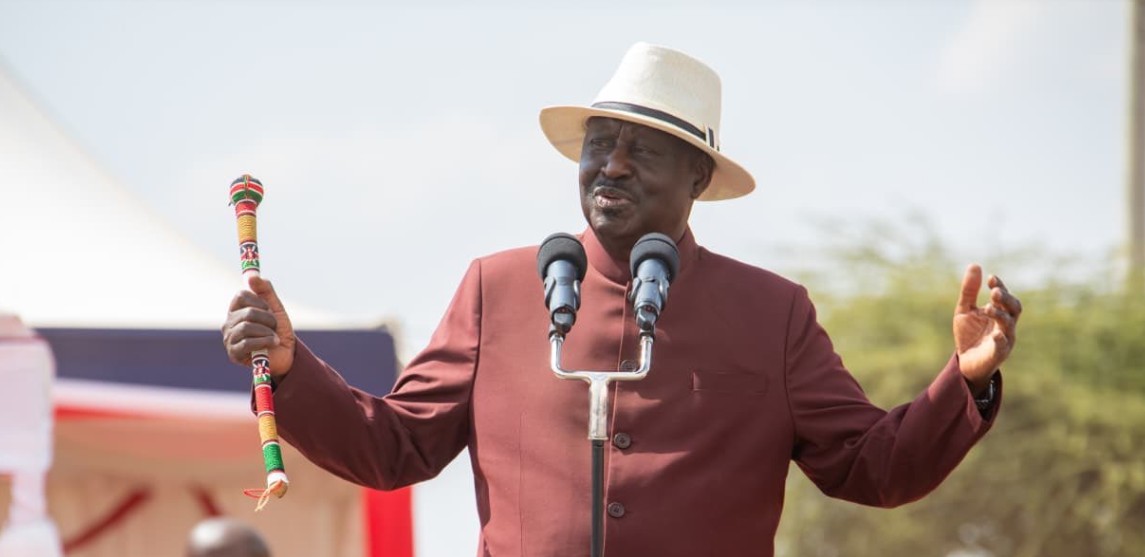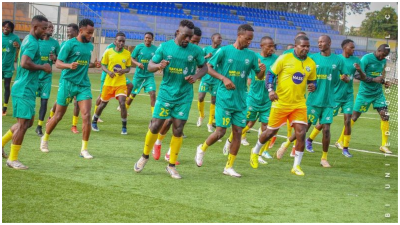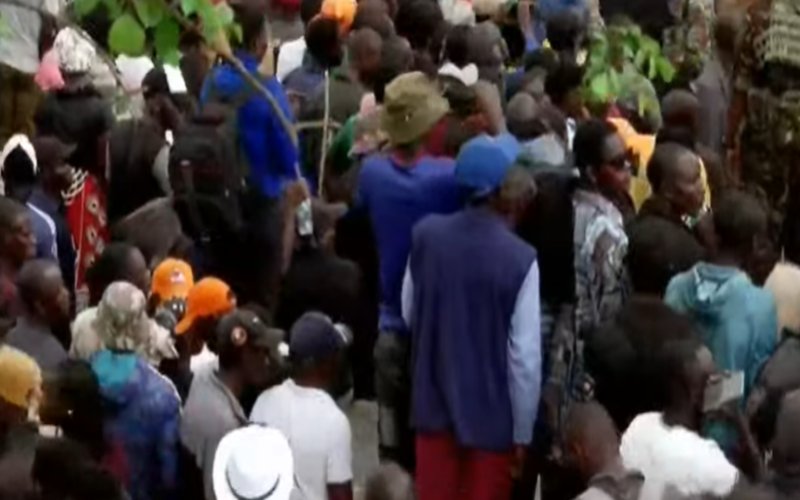Court to rule on Gachagua's impeachement one hour before Senate proceedings

If the night won’t be long for Gachagua ahead of his day of reckoning, then the one hour between the verdict and the Senate commencing the hearing at 9 am could feel like an eternity.
Embattled Deputy President Rigathi Gachagua's hopes are hanging by a thread as he waits for the High Court's verdict on whether the Senate can proceed with his impeachment hearing tomorrow.
A three-judge bench comprising Justices Eric Ogola, Anthony Mrima, and Freda Mugambi is expected to deliver the ruling at 8 am on Wednesday, October 14, after allowing Gachagua's lawyers to plead for conservatory orders temporarily stopping the Senate from impeaching him.
More To Read
- Senate uncovers severe neglect, mismanagement at Busia County Referral Hospital
- Border counties press Senate for extra resource allocation, revenue control
- Teen who breached Parliament, claiming to be President Ruto’s son, freed
- Senator Tabitha Mutinda appointed to global board on World Bank, IMF
- Senate sets stage for tough action against counties with undeclared bank accounts
- Senators warn governors over failure to implement county fund mismanagement resolutions
If the night won’t be long for Gachagua ahead of his day of reckoning, then the 60 minutes between the verdict and the Senate commencing the hearing at 9 am could feel like an eternity—each second ticking by with the weight of his political survival hanging in the balance.
He may cling to the hope that the court's decision to allow his lawyers to file the plea, despite the fierce opposition from National Assembly lawyer Paul Nyamondi and Speaker Moses Wetangula's counsel Benson Milimo, could be a sign that the final verdict may also tilt in his favour.
Nyamondi and Milimo had argued that the court should respect the doctrine of separation of institutional independence, meaning the court should refrain from interfering with the process ongoing at the Senate, as sought by Gachagua.
But Gachagua's lawyers, Senior Counsel Paul Muite and Lawyer Ndegwa Njiru, urged the court to consider that the doctrine of institutional independence can only come into play where that independent institution is acting within "the four corners of the constitution."
The DP's lawyers argue that the impeachment proceedings are unconstitutional, citing the lack of public participation and failure to grant Gachagua a timely hearing. They contend that the principle of separation of powers cannot be invoked to justify an unconstitutional process and, therefore, the proceedings should be halted.
"Where the national assembly is acting in an unconstitutional manner, (the application of the doctrine) cannot be right. The doctrine of institutional independence does not apply when that institution is acting in violation of the law," Muite argued.
Muite added it would be a very sad situation, for the court to say it will not interfere with the independence of the institution (Parliament) when that institution is violating the constitutional rights of Gachagua.
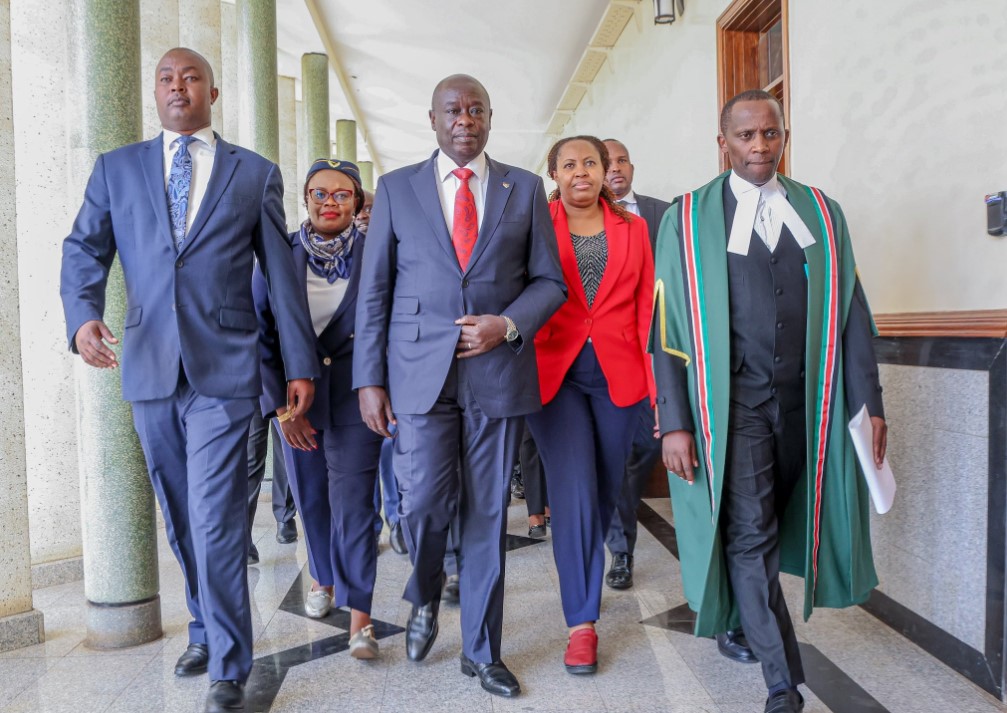 Deputy President Rigathi Gachagua (centre) arrives at Parliament Buildings on October 8, 2024, to present his defence on his impeachment motion. The motion sailed through. (Photo: National Assembly)
Deputy President Rigathi Gachagua (centre) arrives at Parliament Buildings on October 8, 2024, to present his defence on his impeachment motion. The motion sailed through. (Photo: National Assembly)
The senior counsel said Gachagua's rights under Article 50, which cannot be limited, were violated during the national assembly's proceedings, adding that Articles 22 and 23 give the courts powers where rights are threatened, and urged the court to consider that DP's rights have already been violated.
"We ask with respect that you give temporary orders, staying consideration of the resolutions of the National Assembly by the Senate to allow time for this court to hear this petition, those weighty issues," Muite said.
"We are not just dealing with the deputy president issue, we are talking about constitutionalism. The Kenyan people in a presidential system elect a leader, not a semi-god. We don't want to go back to the imperial presidency. Think about the Kenyan people and about the future."
Lawyer Njiru said the question of public interests in the petitions filed by Gachagua is paramount to the extent that the petition is seeking to protect and uphold the constitution under Article 3 (3).
He urged the judges not to tie themselves to the limitations proposed by the doctrine, pleading with the bench to consider that when the people of Kenya were enacting Article 10 of the constitution, they did it with the mind of holding organs, be they judicial organs or parliamentary organs, accountable to the people.
"The current constitutional dispensation in regards to separation of powers has put the people in the middle of the functions of all government's organs.
"And those organs are being dictated that they must observe the rule of law when they sit and dispense with their functions. That is to mean that if parliament fails to abide by the constitution, then the functions, or what ensues therein after, are subject to interrogation and review by the court," Njiru said.
"Article 165(3)(2)(d) has given you (the court) the power to interrogate the functions of any organ in this republic. That is when the doctrine of separation of powers lost its virginity."
He added that the court has the competency to interrogate and issue an order to preserve the process (impeachment).
The lawyer noted that the court has to look at the consequences of not issuing the orders being sought, stating that if the impeachment is to be allowed to proceed, it will culminate in the violation of the deputy president's rights under Article 38.
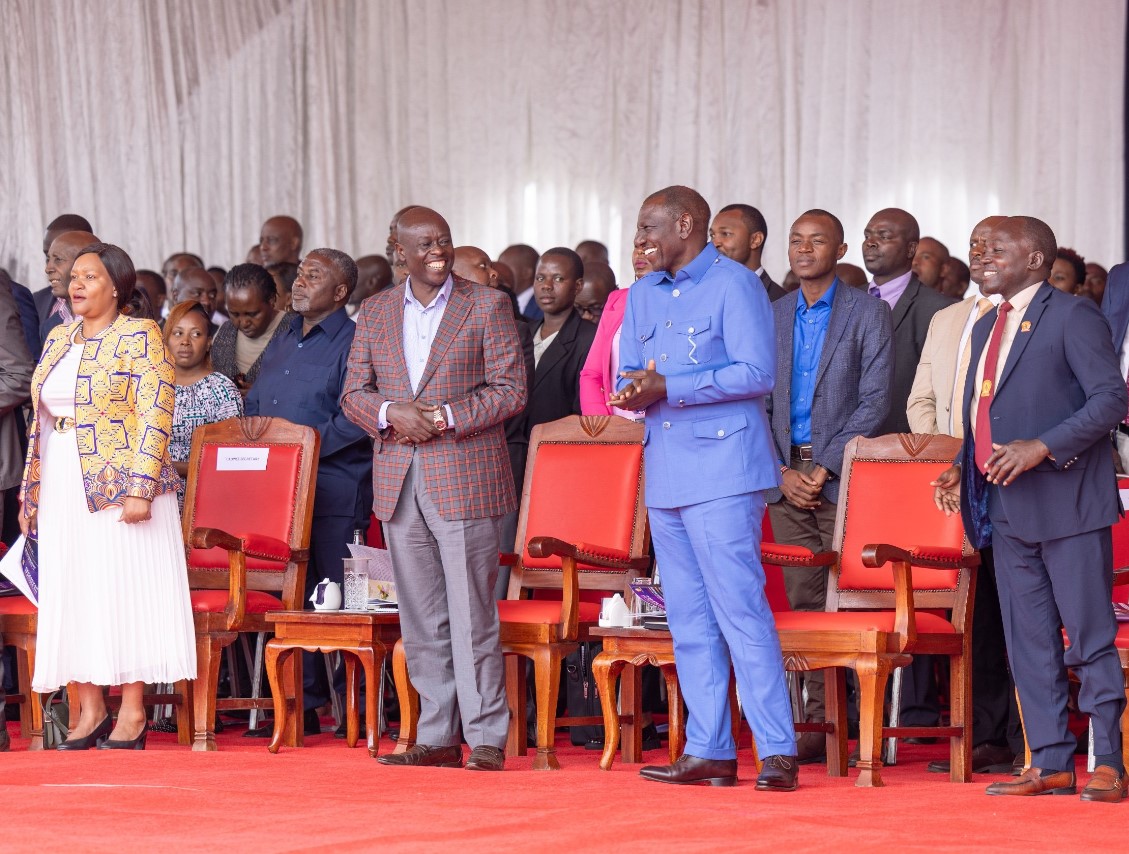 President William Ruto, Deputy President Rigathi Gachagua during a church service and consecration of Bishop Samson Mburu Gachathi, ACK Diocese of Nyahururu on June 23, 2024. (Photo: PCS)
President William Ruto, Deputy President Rigathi Gachagua during a church service and consecration of Bishop Samson Mburu Gachathi, ACK Diocese of Nyahururu on June 23, 2024. (Photo: PCS)
Top Stories Today


